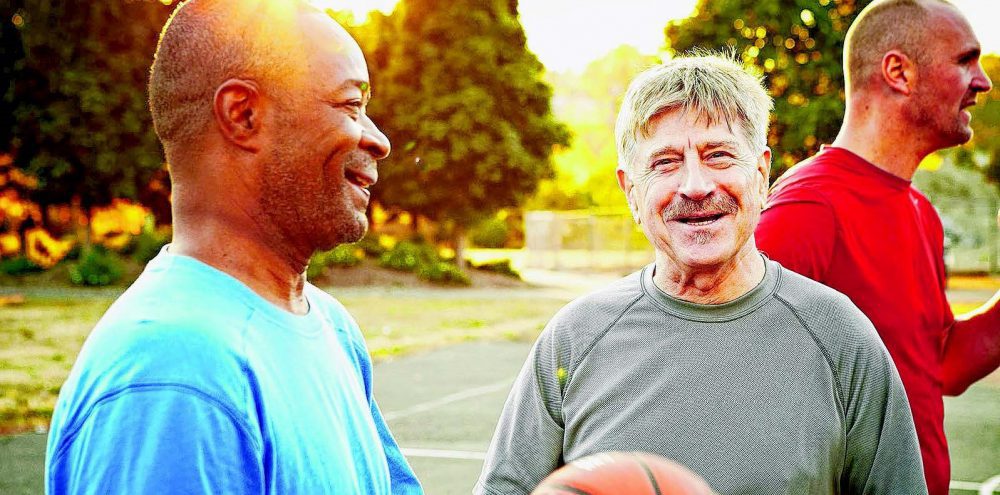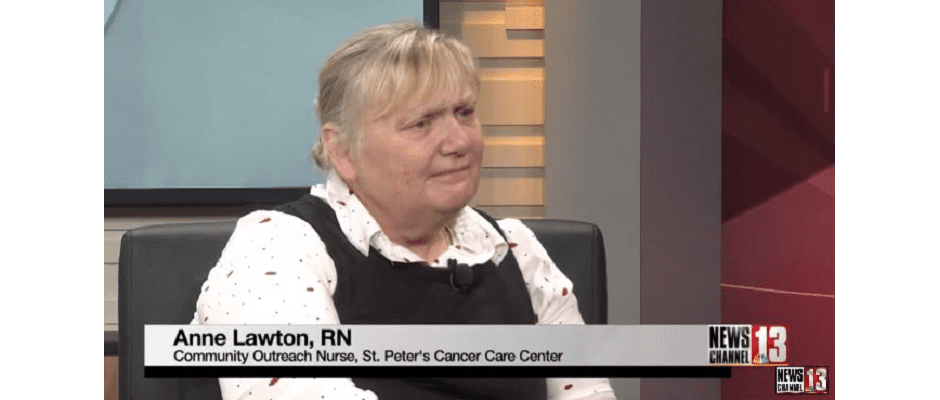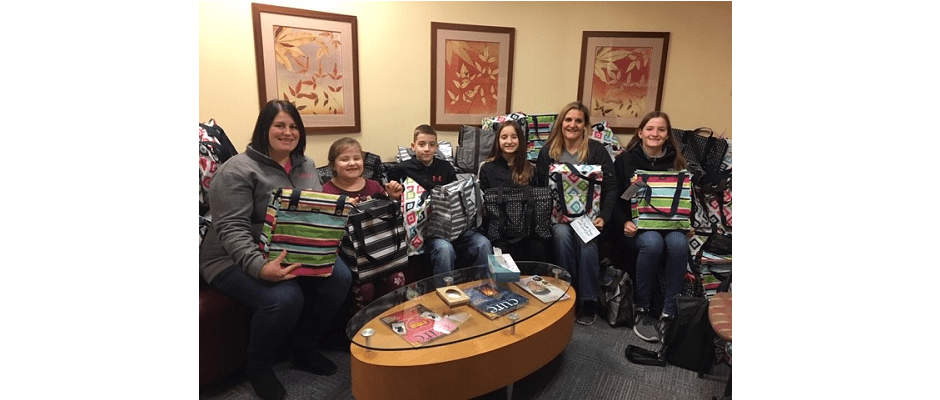
[This story was written by Anne Lawton, RN, a Nationally Certified Tobacco Treatment Professional and community outreach nurse with St. Peter’s Health Partners.]
The warm, sunny weather is here! Before leaving for the lake, a picnic, or to hike, remember to protect your skin from the sun. Taking a few minutes to apply sunscreen and cover up with a hat and shirt can make a huge difference not just for the day, but for a lifetime.
Sunburns, freckles and tans are all signs of sun damage to the skin and that damage accumulates over a lifetime. Being tan does not protect your skin from sunburns. Not only does excessive exposure to the sun accelerate the aging process, it also increases your risk for skin cancer.
Skin cancer is the most common cancer diagnosed in the United States, according to the most recent American Cancer Society Facts and Figures. People at the highest risk include those with red or blonde hair, blue or green eyes, fair or pale complexion and/or a family history or personal history of skin cancer, including melanoma, a potentially deadly form of skin cancer.
Stop by the St. Peter’s Health Partners booth on Saturday, July 24, at the Troy Farmers Market at Monument Square, River Street in Troy, from 9 a.m. to 2 p.m.
Melanoma arises out of an existing mole or can be a new mole or lesion. One easy way to remember common characteristics is to think alphabetically – the ABCDEF of Melanoma. It stands for asymmetry, border, color, diameter, evolving and funky looking. If you have concerns about a worrisome area on your skin, contact your primary care physician or dermatologist for recommendations and guidance.
It is exposure to ultraviolet (UV) rays from the sun that causes harm to skin. To protect yourself, the American Academy of Dermatology (AAD) recommends using sunscreen that is both broad spectrum and has a sun protection factor (SPF) of at least 30. Broad spectrum sunscreen protects the skin against the two types of UV rays; UVA which causes aging and UVB which causes a burn.
For the general population, the following recommendations apply as ways to protect your skin from harmful damage from the sun:
- Sunscreen works by absorbing or reflecting the harmful UV rays from the sun and should be applied generously. The average adult requires one ounce of sunscreen (approximately a full shot glass) for maximum coverage.
- Sunscreen breaks down and rubs off, especially if you are swimming or sweating in hot conditions, so it needs to be reapplied at least every two hours. Don’t forget the tops of your head and ears.
- Wear a broad-brimmed hat, a long-sleeve UV protective shirt, long pants, and shoes when in the sun.
- Stay out of the sun between the hours of 10 a.m. to 4 p.m.
Stop and see me at the St. Peter’s Health Partners booth on Saturday, July 24, at the Troy Farmers Market at Monument Square, River Street in Troy, from 9 a.m. to 2 p.m. I’ll be handing out FREE sunscreen samples and information on how to protect your skin this summer season and throughout your life!
For more information, call the St. Peter’s Hospital Cancer Care Center at 518-525-1827 or the Hildegard Medicus Cancer Center at Samaritan Hospital – St. Mary’s Campus in Troy at 518-268-5060.





